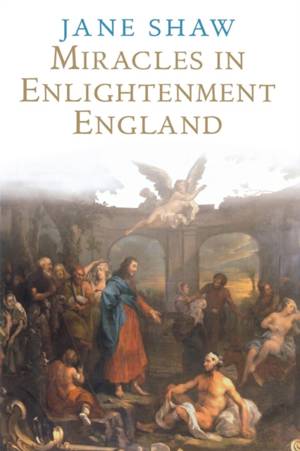
- Afhalen na 1 uur in een winkel met voorraad
- Gratis thuislevering in België vanaf € 30
- Ruim aanbod met 7 miljoen producten
- Afhalen na 1 uur in een winkel met voorraad
- Gratis thuislevering in België vanaf € 30
- Ruim aanbod met 7 miljoen producten
Zoeken
Omschrijving
The Enlightenment, considered an age of rationalism, is not normally associated with miracles. In this intriguing book, however, Jane Shaw presents accounts of inscrutable miracles that occurred to ordinary worshippers in early modern England. She considers the reactions of intellectuals, scientists and physicians to these miraculous events, and through them explores the relations between popular and elite culture of the time. Miraculous events in England between the 1650s and the 1750s were experienced mainly by Protestants, rather than by Catholics. The book looks at the political and social context of these events as well as interpretations and explanations of them by scientists, the Court and the Church, as by preachers, pamphleteers, friends and neighbours. Shaw links the lived religion of the time to intellectual history and amends the hitherto received view. The religious practice of ordinary people was as crucial to the development of Enlightenment thought as the philosophical and theological writings of the elite. Jane Shaw was educated at Oxford, Harvard and the University of California, Berkeley. She is Dean of Divinity, Chaplain, and Fellow of New College, Oxford, and co-editor (with Alan Kreider) of 'Culture and the Nonconformist Tradition' (1999).
Specificaties
Betrokkenen
- Auteur(s):
- Uitgeverij:
Inhoud
- Aantal bladzijden:
- 288
- Taal:
- Engels
Eigenschappen
- Productcode (EAN):
- 9780300197686
- Verschijningsdatum:
- 25/08/2006
- Uitvoering:
- Paperback
- Formaat:
- Trade paperback (VS)
- Afmetingen:
- 156 mm x 234 mm
- Gewicht:
- 362 g

Alleen bij Standaard Boekhandel
+ 128 punten op je klantenkaart van Standaard Boekhandel
Beoordelingen
We publiceren alleen reviews die voldoen aan de voorwaarden voor reviews. Bekijk onze voorwaarden voor reviews.











